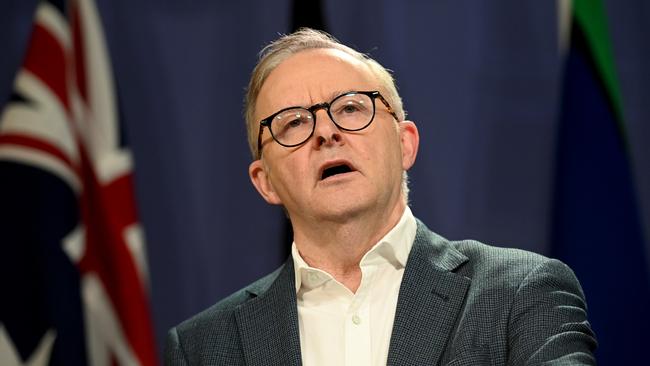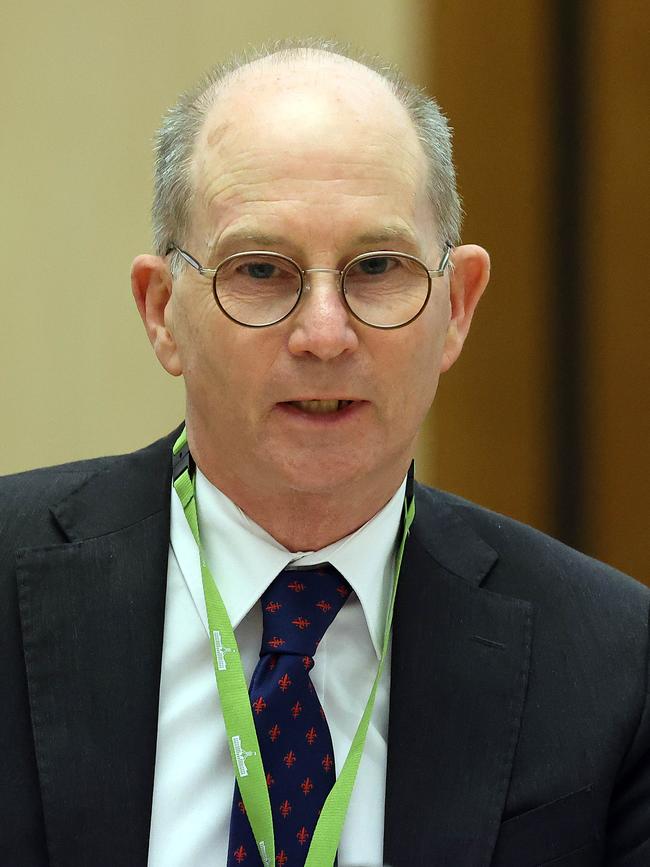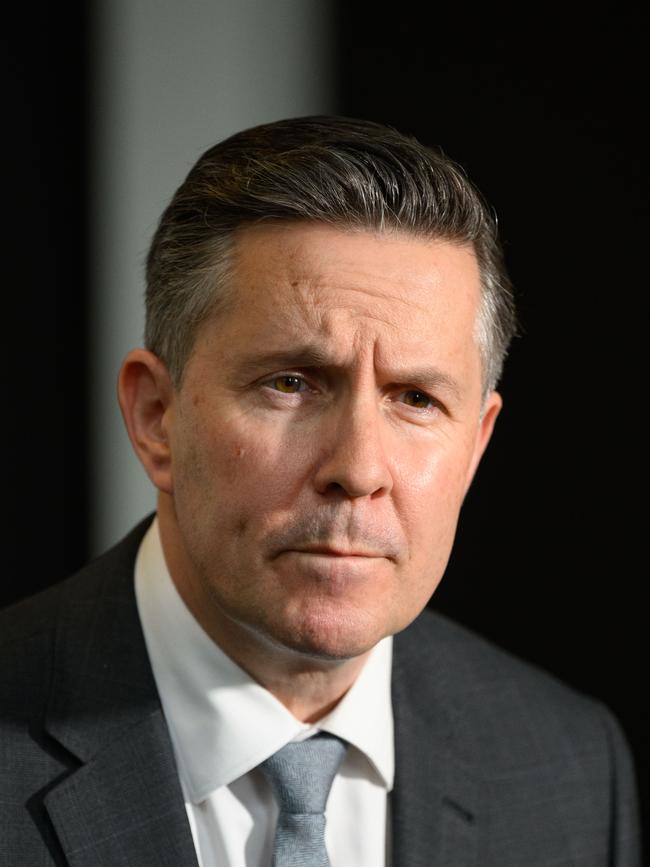Prime Minister Anthony Albanese extends Covid-19 payments for casual workers, more changes
Prime Minister Anthony Albanese has revealed changes coming after a snap national cabinet meeting. See how it affects you.
National
Don't miss out on the headlines from National. Followed categories will be added to My News.
Prime Minister Anthony Albanese will reverse the original end date for pandemic leave payments for casual workers who get Covid-19 and need to isolate during a snap national cabinet meeting.
Mr Albanese came to the agreement with state and territory leaders on Saturday morning in a meeting originally set for Monday to address the escalating winter Covid-19 surge.
The meeting was pushed forward as a matter of urgency following Mr Albanese’s briefing from the nation’s top health advisers shortly after he returned to the country from Fiji where he attended the Pacific Islands Forum.
Mr Albanese and his Health Minister Mark Butler were briefed by Chief Health Officer Professor Paul Kelly and Health Department secretary Brendan Murphy, with infections skyrocketing and hospitalisations rising.
Millions of Australians are expected to contract the virus in the second half of winter.

Mr Albanese confirmed the $750 leave disaster payment scheme would be reinstated until September 30, with the cost to be split 50-50 between the Commonwealth and states and territories.
The payment cut off had been set by the former Morrison governnent for June 30 as the nation battled the winter flu season.
Mr Albanese said crisis payments for people on income support payments or study allowances who were affected by isolation requirements would also be reinstated.
Victorian Premier Daniel Andrews cut short his holiday by two days to attend Saturday’s National Cabinet meeting.
The Premier, who was due to return to the top job on Monday, said it was important for the payments to continue.
“With increasing cases and continued pressure on health systems right across the country, it’s important that people are able to isolate when they have Covid,” he said.
“We’ll have measures in place to support exactly that.”
The Australian Retailers Association, said the reinstatement of the pandemic leave disaster payment will come as a welcome relief for workers who are left out of pocket when they’re forced to isolate with Covid.


“The pandemic leave payments were a valuable measure to support people in isolation when they couldn’t work, and the timing of their removal was problematic – in the heart of winter when infections were spiking, contributing to staff shortages across the economy,” Chief Industry Affairs Officer, Fleur Brown, said.
“We’re pleased to see the restoration of the scheme and appreciate that emergency supports like this are not meant to last forever. The next couple of months will be challenging with daily caseloads set to remain high, so it’s appropriate this safety net remained in place. It will also reduce the risk of infected workers being at work.
“If you get Covid, that means seven days of isolation. And unfortunately for some, who are not eligible for sick leave, that means seven days of no income. We’re pleased to see the actions taken today by the federal, state and territory governments to ensure our most vulnerable workers continue to be supported.”
A new telehealth Medicare item will also be created by next week to allow GPs extra time with patients to determine their suitability for oral Covid-19 antiviral treatments.
Prof Kelly likened the new Covid-19 variants B4 and B5 as being as infectious as measles and said he expected infections in Australia to peak in August.
Mr Albanese urged people to keep up with vaccination.
“If you’re eligible for a booster get it,” he told reporters.
Health advice also urged people to wear masks indoors when appropriate, get tested and practice good oral hygiene.
The announcement comes as Australia faces a recent surge of Covid cases, with a whopping 43,491 cases reported in the last 24 hours across the country.
Experts say pandemic fatigue and complacency are partly to blame for the soaring case numbers after nearly two years of living in fear of the virus.
In total, Australia has endured nearly 8.7m Covid cases since the start of the pandemic, according to the Australian Health Department.
On Friday, Mr Albanese cautioned Australians to remain vigilant and take measures to protect themselves from Covid.
“We know the Covid pandemic is not over and people should continue to act in accordance with the health advice,” he said.
The chief health officer compared the infectiousness of the current strains of Omicron to measles, which Mr Albanese noted was a “sobering thought”.


